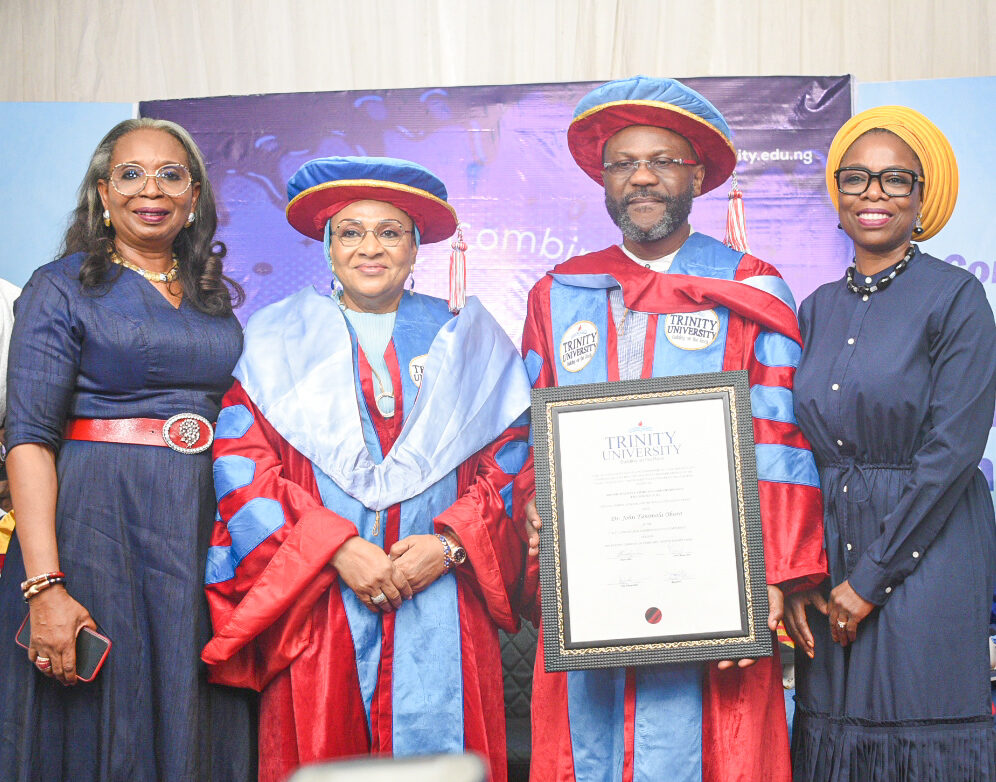John Obaro: The Titan of Time and Chance
How quiet preparation met public need—and changed Nigeria’s financial future.
By Dr. ‘Bekeme Olowola
In 2015, when the Nigerian government began enforcing the Treasury Single Account (TSA), it was trying to solve a very complex problem: how to centralize the management of public funds in a way that curbed leakages and improved transparency.
It was a massive administrative challenge. Banks scrambled. Ministries hesitated. The infrastructure didn’t yet exist to execute such a vision—until someone said a name that few outside the fintech space had heard:
Remita.
It wasn’t new. It wasn’t flashy. But it was built; built to meet pressing needs which many didn’t know at the time.
And behind it was John Obaro, a software entrepreneur who had been working, quietly and deliberately, for over a decade.
A Builder Long Before the Boom
Before fintech became the hot word it is today, John Obaro was already in the game—writing software, assembling teams, and imagining what Nigeria’s digital infrastructure might look like.
After working as an IT strategist at United Bank for Africa, he founded SystemSpecs in 1991. What began as a small HR software company eventually grew into a full-fledged tech group, with platforms like:
- Remita – Nigeria’s flagship payment and financial operations software
- HumanManager – A scalable HR and payroll solution
- SystemSpecs Technology Services – The infrastructure engine behind the group
- Deelaa – A lifestyle and commerce platform for a digital economy
But Obaro didn’t build for press releases or headlines. He built for readiness. For scale. For that moment when policy would need support—and the country would look for solutions that already worked.
When Policy Caught Up to Vision
That moment came in the form of the TSA.
A World Bank recommendation turned into Nigerian law. Ministries and agencies were required to consolidate their accounts. They needed a reliable, secure, and fully integrated payment system—and fast.
Remita was ready.
By 2016, Remita had processed over ₦3 trillion in government transactions. It became the unseen backbone of Nigeria’s public revenue system. And SystemSpecs, once a quiet company, became the architect of one of Africa’s most ambitious digital treasury programs.
John Obaro didn’t just meet the moment. He had anticipated it.
A Culture of Purpose, Not Hype
At a time when startups often chase valuation over values, SystemSpecs under Obaro has stayed grounded.
Inside the company, the culture is one of quiet commitment. Some employees have been there 15+ years. Innovation isn’t a buzzword—it’s a discipline. And mentorship flows from the top down.
Obaro himself is soft-spoken, humble, and highly respected across the industry. He’s received multiple honorary doctorates and industry awards, not for dominating headlines, but for building a business that has outlasted trends and navigated complexity with integrity.
Beyond Transactions
But the impact doesn’t stop at software.
Under Obaro’s leadership, SystemSpecs has:
- Reached over 5 million Nigerian children through digital literacy programs
- Created an integrated lending marketplace for underserved communities
- Expanded agency banking access to Nigeria’s remotest areas
- Continued to mentor, invest in, and champion Nigeria’s next generation of tech talent
Obaro is also an active voice in the fintech ecosystem, serving on boards like the Fintech Association of Nigeria, and participating in events that shape digital policy and innovation culture across Africa.
Why It Matters
In an age where disruption is often noisy, John Obaro is a rare example of what it means to build quietly and serve loudly.
He didn’t wait for government contracts to validate his product. He built Remita when no one asked him to. He nurtured SystemSpecs when the market wasn’t yet ready. And when time and chance finally aligned, he showed up with a solution.
There’s a lesson in that. For entrepreneurs: build patiently. For policymakers: partner intentionally. For every professional: understand that legacy is not made in moments—it’s made in the years before them.
Not all tech founders want to be in the spotlight. Some just want to be ready when their country needs them.
— And John Obaro was.


